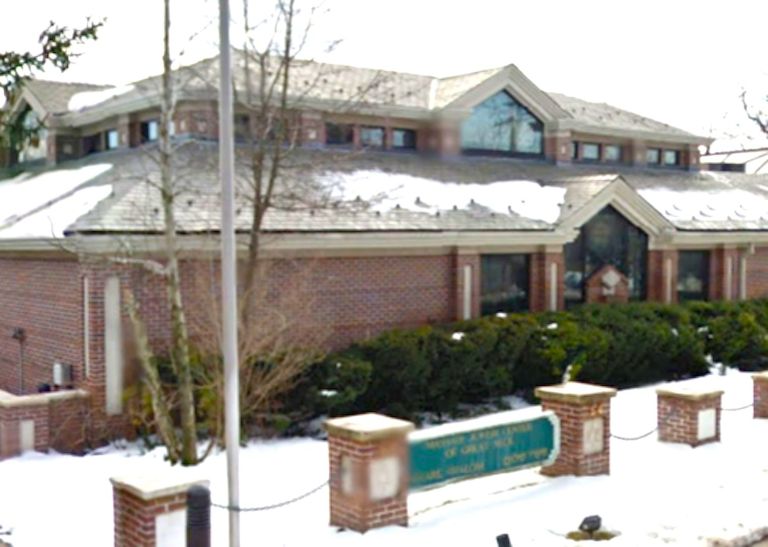
Officials from two Great Neck temples said last week they do not engage in the ritual killing of roosters as part of their observance of Yom Kippur known as “Kapparot.”
“Kapparot for us, we do it with charity,” United Mashadi Jewish Community of America President Mehran Hakimian said. “The morning of we ask everybody for money and we take that money and feed hungry people with it. That’s how we perform our duties.”
Traditonally, Kapparot is performed by waving a chicken or rooster above one’s head while reciting a prayer, which is then sacrificed by chopping off its head, though in recent years followers have been offered the alternative of donating either money or a chicken to charity.
Hakimian said the Mashadi Jewish Center practices Kapparot, but uses a monetary donation during prayer rather than a live chicken.
Village of Great Neck resident David Zielenziger said he had received weekly newsletters from the Mashadi Jewish Center in the last few years that have publicized “live Kapparot,” but had not received one yet this year.
Zielenziger said the practice of killing chickens was outdated and inhumane.
Hakimian denied that the Mashadi Jewish Center ever promoted a “live Kapparot” and submitted a newsletter by Chief Rabbi Yosef Bitton arguing against the practice of sacrificing chickens.
In the newsletter, Bitton cites “the risk of violating the Biblical prohibition of Bal Tashchit (not to kill an animal unnecessarily)” as why the community should not use animal sacrifice to perform Kapparot.
Hakimanian added in a letter to the editor that appears in this week’s Great Neck News that “We wish to note that while it is our community’s custom to perform this religious service through donation of money to charitable causes, we do not pass judgment on those communities that have a different customer nor do we opine as to the legality or illegality of the chicken Kapparot practices in Great Neck or anywhere else.”
Rabbi Yoseph Geisinsky of Chabad of Great Neck said the temple does bring in chickens to perform the Kapparot ritual, but they are not killed at his synagogue.
“We are not slaughtering anything here,” Geisinsky said. “What we do is the chicken comes, we make a blessing that is a symbolic gesture, and then we return the chickens to where they came from.”
Geisinsky said the temple buys the chickens full price from a farm in Pennsylvania and gives them back for free once the ritual is over.
“What the farm does with them once they get them back is not my business,” he said.
The Chabad of Great Neck has publicized “Live Kapparot” ceremonies to take place at the temple on Sept. 21 and 22, prior to the start of Yom Kippur, on its website with a page that contains an emoji of a chicken
But the temple was unclear about whether chickens would be part of the ceremony and, if they did, how they would be used.
A portion of a prayer posted to the website reads: “This is my exchange, this is my substitute, this is my atonement. This rooster will go to its death (this money will go to charity) while I will enter and proceed to a good, long life, and to peace.”
Representatives for both temples had declined to comment on their Yom Kippur ceremonies when contacted for the story that appeared in the Great Neck News on Sept. 4.
The possession of live chickens is illegal in both Kings Point and the Village of Great Neck, though it is unclear if a traditional Kapparot service in which roosters are killed would also violate each village’s code.
Great Neck Village Clerk Joe Gill said he is not aware of any complaints to the village about Kapparot, but added that code enforcement officers could not investigate potential wrongdoing unless first notified by a resident.
The village’s code, Gill said, does not specify whether animal sacrifice during religious ceremonies is prohibited.
“According to village code, people can’t have chickens,” he said, adding, “The board would have to address it, but at this point, no complaints have been made.”
Kings Point’s code declares chickens on a list of “prohibited animals,” for which “the keeping maintaining, or harboring” is considered a “nuisance, unlawful, and prohibited within the village.”
The killing of chickens as part of Yom Kippur services in Brooklyn temples has been challenged by residents represented by Great Neck attorney Nora Constance Marino
On Aug. 25, Marino sued several rabbis and yeshivas in Crown Heights to stop Kapparot rituals involving the slaughtering of chickens.
On Monday, a Manhattan judge ruled in favor of several rabbis and yeshivas in Crown Heights who planned to bring in 50,000 chickens as part of Kapparot observances on city streets, according to the Daily News.
State Supreme Court Judge Debra James said the enforcement of animal cruelty laws was discretionary and that police did nothing wrong in allowing rabbis to slaughter chickens on the street, according to the Daily News.






